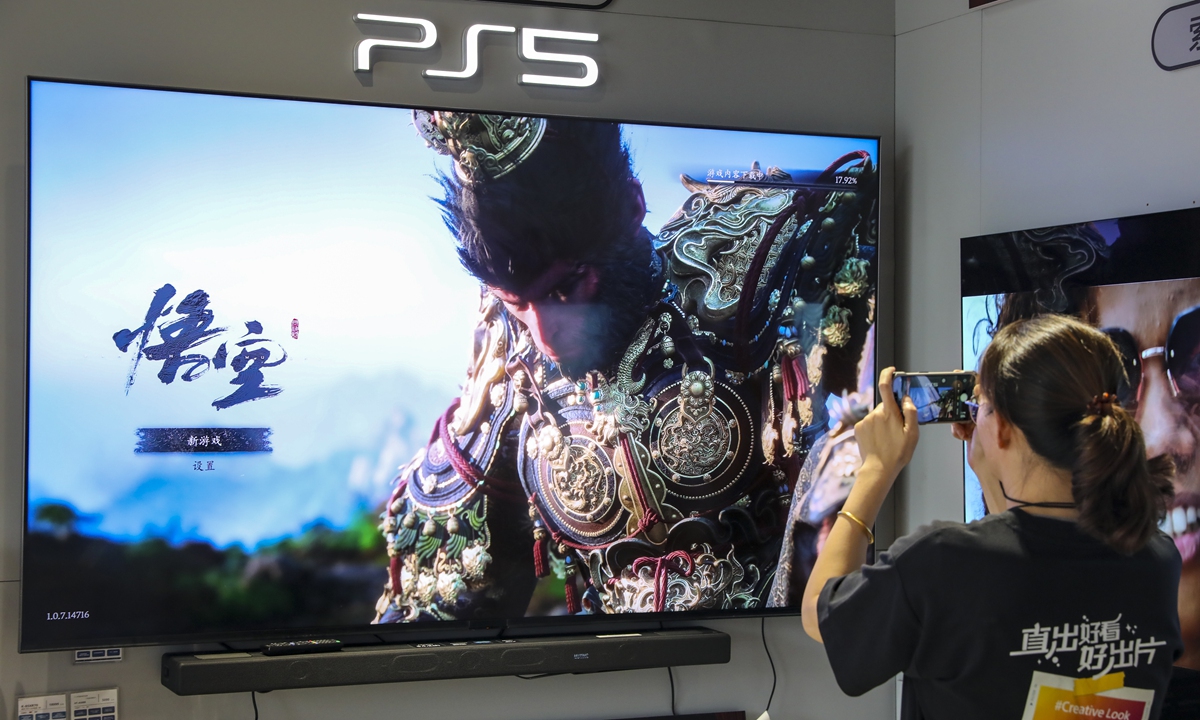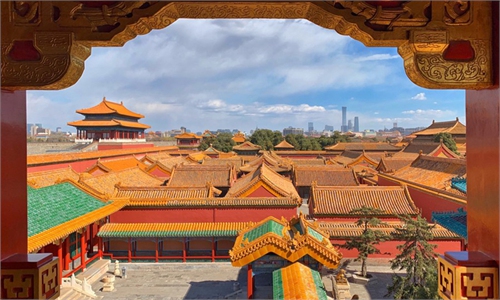Look at fever of ‘Black Myth: Wukong’ with a calm mind-set: Global Times editorial

Black Myth: Wukong Photo: VCG
The Chinese game Black Myth: Wukong was officially released on Tuesday. Within just a few hours of its launch, it ranked first on the best-selling list of 29 countries and regions on the game platform Steam, with more than 1.1 million online players at the same time. The authentic presentation of Chinese culture and Chinese aesthetics in the game has not only impressed Chinese players, but also attracted a large number of foreign players. Before experiencing the game, reading through the original book Journey to the West has become a "required course" for many foreigners.Since the second decade of this century, with the successive release of a series of representative masterpieces such as The Three-Body Problem, The Wandering Earth, Genshin Impact, 30,000 Miles from Chang'an and My Altay, China's cultural industry has ushered in a matrix breakthrough. From the full digestion and absorption of foreign culture to the creative transformation and innovative development of China's excellent traditional culture, high-quality products with excellent reviews have emerged in the fields of film, television, games, and more. This not only marks the overall improvement of the comprehensive level of the country's cultural industry, but also a manifestation of cultural confidence.
From every plant in the game to every word spoken by the characters, Black Myth: Wukong showcases distinct national cultural characteristics. In order to reproduce the buildings in the original work of Journey to the West, technicians traveled all over the country and established China's first virtual asset library of ancient buildings. A large number of historical temples, cultural relics and ancient books were restored, including Dazu Rock Carvings in Chongqing and Lingyin Temple in Hangzhou. The wonders that can be seen everywhere in the game make players around the world marvel at Chinese culture. "When rendering, we even didn't wipe away the dust so as to preserve the beauty of Chinese oriental architecture to the greatest extent. We believe that the digital expression of Chinese culture can transcend national borders," said the game's makers. This firm confidence in Chinese culture and the dedication to preserving China's excellent traditional culture are the strength for Chinese literary and art workers to stand firm in the world culture.
Journey to the West is a representative work of Chinese literature in overseas communication and a well-known symbol of Chinese culture. In modern times, numerous adaptations of Journey to the West have emerged in various forms, including literature, film, television, and video games. China has produced the animated film Havoc in Heaven and the TV series Journey to the West. In Japan, Akira Toriyama created the manga Dragon Ball. In the West, the US has made films such as The Monkey King and American Born Chinese, and Australia produced The New Legends of Monkey. However, most of these Western adaptations tell Western stories under the name of Journey to the West. How to use contemporary technology and forms to create a "Monkey King" that embodies Chinese discourse, narrative, and spirit has been a continuous exploration for Chinese artists and eagerly anticipated by Chinese society.
Since the first trailer of Black Myth: Wukong caused a sensation four years ago, many have placed high hopes on it to boost the international spread of Chinese culture. So far, Black Myth: Wukong has garnered much admiration overseas, but some media outlets a different stance, viewing the Chinese gaming industry as the next "threat" to Western companies in the market. These perspectives are familiar, but they have missed the mark. China's cultural market is already enormous, and with its rich historical and cultural resources, vast creative talent, and technological innovation, Chinese cultural products are making breakthroughs, steadily advancing toward high-end and international markets. This is clearly an unstoppable trend. At the same time, the international dissemination of China's excellent cultural products also has the significance of enriching global cultural experience and demonstrating cultural diversity.
China also needs to maintain a calm mind-set. While the success of a game is certainly exciting, the Chinese people must recognize that in terms of the technical level, industry experience, and market maturity related to single-player games, the country is still a beginner. Chinese industry professionals need to understand that as their capabilities rise, they will gradually enter a stage of direct competition with their international peers, and the competition will only become more intense. In the face of an international market with diverse evaluations, Chinese developers, as latecomers in the global gaming industry, should maintain a humble and progressive mind-set, viewing external feedback and their own achievements objectively and calmly.
Black Myth: Wukong is a successful and new beginning for the international communication of Chinese cultural products, but just like Wukong breaking out of the stone and becoming the "Monkey King," it is the prelude on the long journey to the West. Currently, contemporary Chinese experience, represented by film, television, games, and etc., is overflowing. This is a cultural fact that the whole world is constantly perceiving. Looking to the future, China must especially exert modern cultural industry methods with a more confident mindset to create and produce more high-quality works that focus on Chinese discourse and Chinese narrative, so as to form an international discourse power that matches the country's comprehensive national strength and international status.



